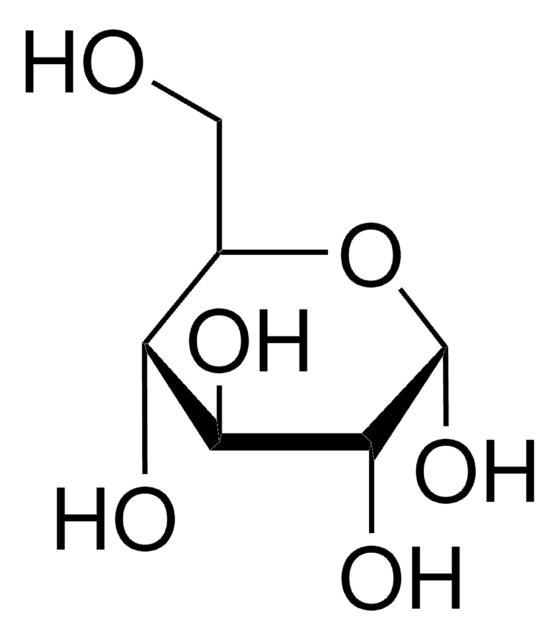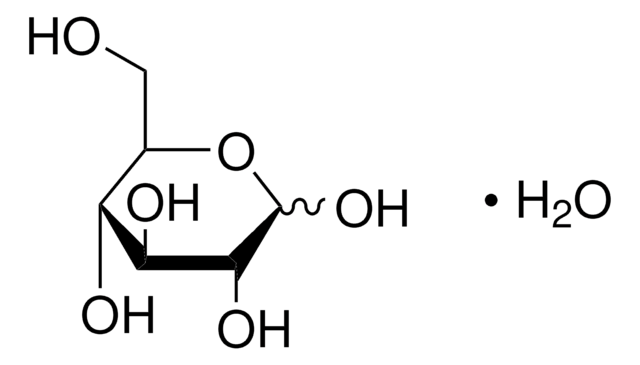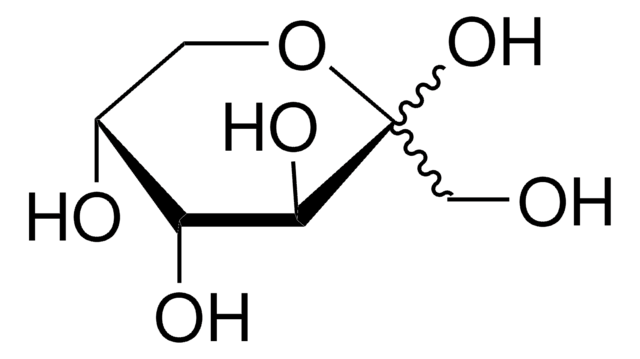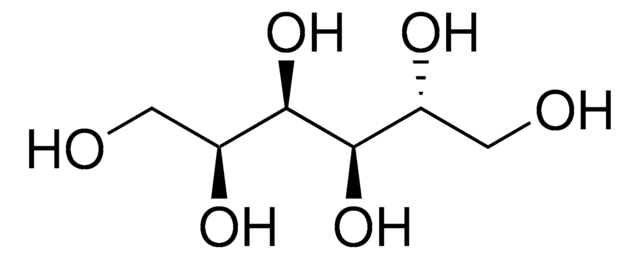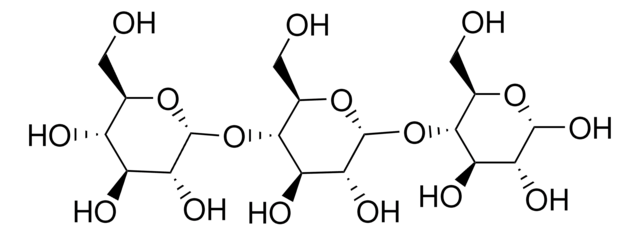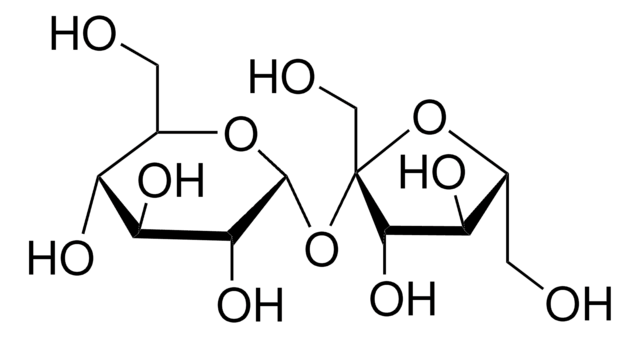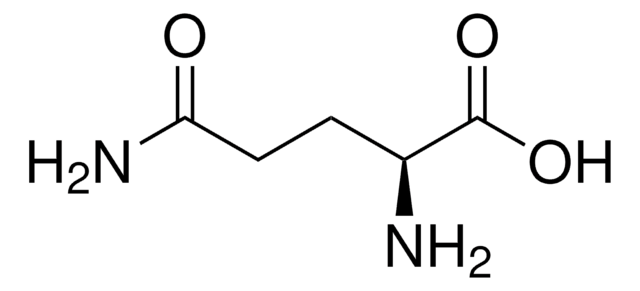G0350500
Glucose
European Pharmacopoeia (EP) Reference Standard
Synonym(s):
D-(+)-Glucose, Dextrose
About This Item
Recommended Products
manufacturer/tradename
EDQM
mp
150-152 °C (lit.)
application(s)
pharmaceutical (small molecule)
format
neat
SMILES string
OC[C@H]1O[C@H](O)[C@H](O)[C@@H](O)[C@@H]1O
InChI
1S/C6H12O6/c7-1-2-3(8)4(9)5(10)6(11)12-2/h2-11H,1H2/t2-,3-,4+,5-,6+/m1/s1
InChI key
WQZGKKKJIJFFOK-DVKNGEFBSA-N
Looking for similar products? Visit Product Comparison Guide
General description
Application
Packaging
Other Notes
related product
Storage Class
11 - Combustible Solids
wgk_germany
WGK 1
flash_point_f
Not applicable
flash_point_c
Not applicable
Choose from one of the most recent versions:
Certificates of Analysis (COA)
Sorry, we don't have COAs for this product available online at this time.
If you need assistance, please contact Customer Support.
Already Own This Product?
Find documentation for the products that you have recently purchased in the Document Library.
Customers Also Viewed
Our team of scientists has experience in all areas of research including Life Science, Material Science, Chemical Synthesis, Chromatography, Analytical and many others.
Contact Technical Service